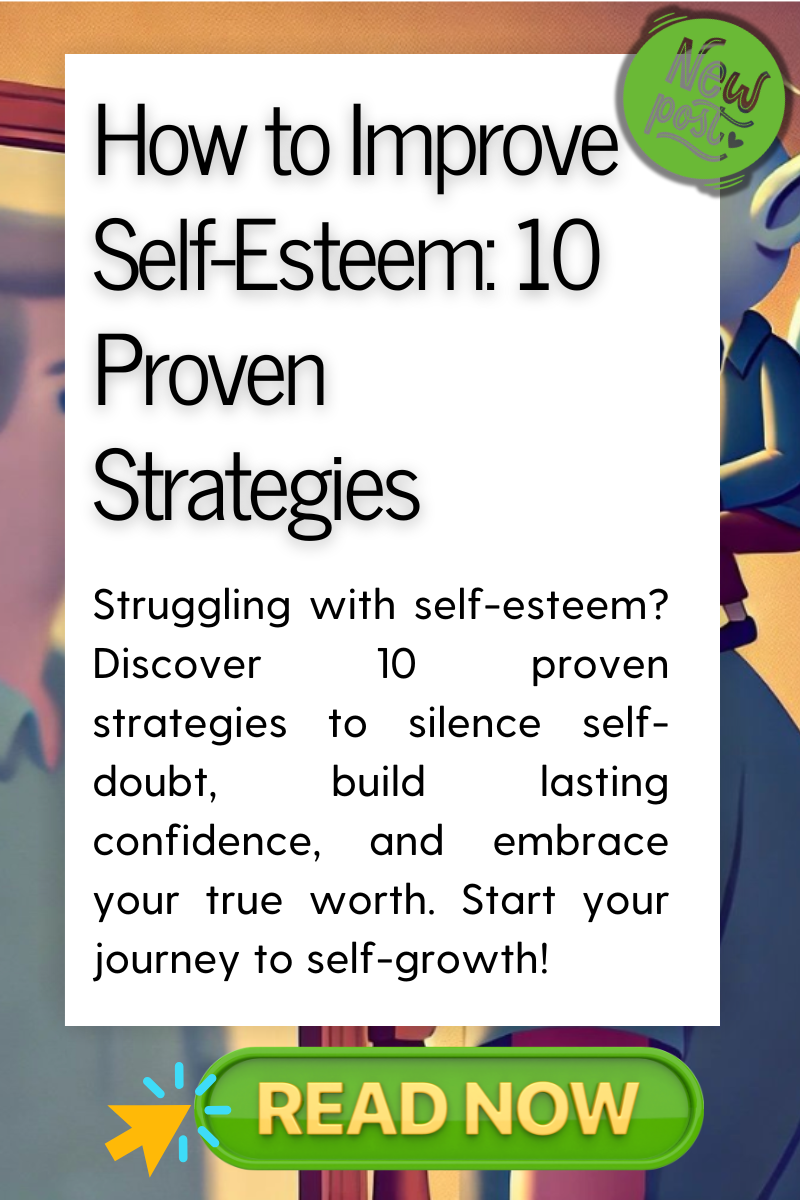Inner Critic Worksheet: Coach Workbook with PDF
Step 1: Identify Your Negative Inner Critic
Ever noticed that harsh inner voice—the one whispering, "You're not good enough" right before an important moment? This critical voice, often our negative inner critic, can sabotage personal growth and undermine your mental health. Neuroscience and cognitive behavioral therapy reveal that personifying this inner voice—giving it a silly, memorable name—creates psychological distance, reducing emotional intensity. This is a technique rooted in cognitive behavioral therapy and supported by research in distancing and self-talk reframing.
Your inner critic isn’t the enemy — it’s a scared part of you that learned to yell instead of whisper. The goal isn’t to silence it completely… it’s to retrain its tone. This updated worksheet helps you do exactly that — calmly, practically, daily.
Grab a blank sheet of paper (or use my inner critic worksheet). Write down your critic's greatest hits: "You'll embarrass yourself," "Nobody cares," "You'll fail again." Naming this voice—like "Negative Nancy" or "Doubtful Dave"—is a simple but powerful defense mechanism to distance yourself emotionally. Research shows that giving your inner critic a name can create psychological distance and regulate emotional response.
Step 2: Hand Your Inner Critic Their Pink Slip
On your blank sheet, in bold letters, write the name you've chosen. Beneath it, list every instance of negative self-talk you frequently hear. Then, firmly and clearly state: "Thanks, but you're fired."
Sound funny? Maybe—but it works. Reframing your critical voice as a poorly performing employee removes its power, shifting you from a weak self perspective to a place of strength.
Step 3: Replace Your Inner Critic with an Inner Coach
Now, replace that inner critic with a positive inner coach. This voice speaks with empathy and encouragement. Developing a compassionate inner voice is linked to improved mental health, emotional resilience, and reduced stress. Imagine what a wise friend would tell you. Positive self-talk statements, like, "You’ve overcome harder challenges," or, "Mistakes are opportunities for learning," are transformative.
Perform a quick audit:
Is this thought helpful or hurtful?
Would I say it to a friend?
If not, rephrase immediately. Practicing this can significantly enhance your social-emotional development.
Step 4: Daily Micro-Exercises to Strengthen Your Inner Coach (Total: 5 minutes)
Morning Mirror (30 seconds): Greet yourself warmly, "Good morning! Let's keep Negative Nancy quiet today."
Email Check (15 seconds): Before sending an email, pause. Rewrite if your critic chimes in.
Evening Reflection (4 minutes): Write down one accomplishment overlooked by your critic. Celebrate it regardless.
Consistency matters. Commit for one week, and the critic's voice fades, replaced by a supportive inner coach.
Additional Writing Exercises to Deepen Your Practice
Building your inner coach requires regular practice to overcome limiting beliefs. Here are some additional writing exercises designed to strengthen your mental muscles and gradually reduce the power of your negative critic:
The Example Sheet Method
Create an example sheet to track situations where your inner critic emerges. Divide your paper into three columns:
Situation: Clearly state what triggered your critical voice.
Negative Thought: Document exactly what your critic said.
Positive Reframe: Actively write a positive or neutral counter-statement.
For instance, your example sheet might look like:
Situation: Presenting at work.
Negative Thought: "I'm going to mess this up and embarrass myself."
Positive Reframe: "I am prepared, and even if it's not perfect, I can handle it."
This systematic writing exercise helps you recognize patterns in your own negative thinking and develop immediate counter-responses. You can then overcome limiting beliefs, enhancing your self-awareness and resilience.
Journaling for Insight
Journaling regularly offers an avenue for deeper self-reflection. Set aside fifteen minutes daily to freely write about your day without self-censorship. Over time, you'll begin to notice recurring themes or triggers for your inner critic, allowing you to proactively address these issues.
You might start with prompts such as:
"Today, my inner critic appeared when..."
"I handled a challenging situation by..."
"One positive realization about myself today was..."
Gratitude Writing Exercise
Gratitude is a powerful antidote to negativity. Daily gratitude writing is shown to increase happiness and reduce depressive symptoms, even in high-stress environments. Each evening, take five minutes to write down three things you're grateful for. This exercise shifts your attention away from your own negative perceptions toward recognizing the positive aspects of your life.
Expanding Your Transformative Journey with Coaching
Incorporating professional coaching into your routine can significantly enhance your journey toward self-compassion and resilience. Consider:
Personalized Coaching Sessions: Working one-on-one with a professional coach provides tailored strategies specifically designed to help you manage your inner critic and achieve lasting emotional resilience.
Group Coaching and Workshops: Participating in group coaching sessions or workshops offers the opportunity to gain fresh perspectives, validate your experiences, and build supportive networks with individuals navigating similar challenges.
Managing Your Own Negative Patterns
Understanding and managing your own negative patterns is crucial. Negative self-talk often arises from deeply ingrained beliefs or past experiences. Take time to reflect on the origins of your critic:
What past experiences or messages contribute to these negative beliefs?
Are these beliefs serving you in any positive way?
Can you challenge or reframe these beliefs into more empowering statements?
Deliberately confronting and dismantling these old patterns frees you from repeating unhelpful behaviors, making space for genuine self-growth and confidence.
Need more clarity? Try my free Find Your Purpose Starter Kit.
Final Thoughts: Embrace Your Inner Coach
The journey to silencing your inner critic is ongoing, requiring patience, compassion, and consistency. As you continue to recognize, challenge, and replace your negative self-talk with supportive affirmations, your inner voice will gradually transform. Remember, the strength to reshape your internal dialogue already lies within you—embrace your inner coach, and let this supportive voice guide you towards greater self-confidence and fulfillment.
Ready to Turn the Volume Down on Your Inner Critic?
You’ve read the guide, maybe even tried the worksheet… but that voice in your head still runs the show.
That’s where I come in.
👉 Book a free 15-minute consultation and let’s talk through what’s showing up—and how to start shifting the script.
Join the Conversation
This post is one side of the story… the other side is yours. What came up for you?
FAQ: Quieting Your Inner Critic & Building Positive Self-Talk
What is an inner critic worksheet, and how can it help me?
An inner critic worksheet is a structured tool designed to help you identify, understand, and manage negative self-talk. By using writing exercises to document and analyze your critical thoughts, you create psychological distance and transform negative patterns into positive, supportive ones.
How can cognitive behavioral therapy (CBT) tools like worksheets benefit my mental health?
CBT worksheets provide practical methods to recognize and alter negative thought patterns. These writing exercises support mental resilience by helping you reframe self-critical thoughts, reducing anxiety and improving overall emotional well-being.
What’s the benefit of giving my inner critic a name?
Naming your inner critic creates psychological distance, allowing you to more objectively evaluate negative self-talk. This simple strategy transforms the critic from an overwhelming presence to a manageable issue, fostering a sense of control and empowerment.
How frequently should I practice writing exercises to effectively manage my inner critic?
Daily practice, even for just a few minutes, significantly boosts your ability to quiet your inner critic. Consistency with short, focused writing exercises like journaling, example sheets, and gratitude reflections can rapidly build healthier thought patterns.
Can I use these exercises individually, or are they more effective in professional settings?
These writing exercises are versatile and can be highly effective for individual use. However, combining them with professional therapy resources or workshops can deepen your insights and accelerate your progress.
What is the difference between my inner critic and my inner coach?
Your inner critic is the negative voice that judges and undermines your confidence. Your inner coach, conversely, offers positive self-talk statements and encouragement, helping you navigate challenges with resilience and optimism.
How does an example sheet help in managing my negative thoughts?
An example sheet is a structured method for documenting specific situations where your inner critic appears. By clearly listing the trigger, the critic’s negative message, and an alternative positive reframe, you actively counteract your own negative patterns, creating lasting change.
What should I do if my inner critic continues to overpower my positive self-talk?
If your inner critic remains persistent, consider additional support such as working with a therapist, engaging in group workshops, or exploring comprehensive mental health workbook therapy tools. Often, deeper patterns require structured professional guidance to overcome.
Can these exercises truly create long-term changes in my self-perception?
Yes. Regular, intentional practice of these exercises rewires your brain, reinforcing positive neural pathways. Neuroscientists confirm that self-directed neuroplasticity can reshape negative thinking patterns through repetition and mindfulness.
What is the first step to effectively silence my inner critic?
The initial step is recognizing and clearly naming your inner critic. Once you create this psychological distance, you can systematically challenge negative thoughts, replace them with constructive alternatives, and consistently reinforce positive self-talk.
Still Wondering How to Quiet That Voice?
If your inner critic keeps raising questions or casting doubt… that’s what it does.
But you don’t have to figure this out alone.
👉 Schedule a free 15-minute consultation and let’s explore the next best step together.
Mastering your inner dialogue requires more than fleeting motivation—it takes practical strategies, self-awareness, and consistent practice. The following curated books provide transformative tools and deep insights to help you shift from self-sabotage to self-support.
The Inner Critic Workbook – Sharon Martin
An accessible guide filled with practical exercises to help you cultivate self-compassion, silence your inner critic, and foster a supportive inner coach. Martin’s workbook is a valuable companion for anyone committed to reshaping their inner dialogue.Cognitive Behavioral Therapy Made Simple – Seth J. Gillihan
Gillihan provides an easy-to-follow introduction to cognitive behavioral therapy (CBT), offering effective strategies to identify and change negative thought patterns. This book is ideal for anyone looking to gain clarity on why their negative self-talk persists and how to effectively address it.Quiet Your Inner Critic – Lindsay Kramer
Kramer’s book combines insightful narratives, actionable worksheets, and targeted writing exercises to help readers reclaim their inner strength and transform negative internal messaging into empowering self-talk. This read is particularly beneficial for those wanting to deeply engage in self-reflection and personal growth.Self-Compassion: The Proven Power of Being Kind to Yourself – Kristin Neff
Neff’s groundbreaking research-based approach teaches readers how self-compassion is essential for emotional resilience and mental health. The strategies provided help readers navigate emotional challenges and reduce the power of their critical voice.The Untethered Soul: The Journey Beyond Yourself – Michael A. Singer
Singer's profound insights offer readers the tools to release internal negativity and achieve emotional freedom. Through mindfulness and spiritual awareness, this book guides you toward understanding and transcending your critical inner voice.Radical Acceptance: Embracing Your Life With the Heart of a Buddha – Tara Brach
Brach’s transformative book explores acceptance and mindfulness as powerful methods to confront and diffuse self-critical thoughts. This compassionate approach encourages emotional healing and self-understanding, helping readers build a more positive inner dialogue.
Books Can Shine a Light—Coaching Helps You Move Forward
Reading helps you understand the inner critic.
Coaching helps you respond to it differently—day by day.
👉 If you’re ready for clarity and real tools, book a free 15-minute consultation.
We’ll talk through what’s working, what’s not, and where to begin.
Transform Your Inner Dialogue with Josh Dolin’s Expert Coaching
Navigating the complexities of negative self-talk and self-criticism can feel daunting, affecting your confidence, mental health, and overall well-being. Josh Dolin specializes in helping individuals silence their inner critic and develop a supportive inner dialogue through expert coaching.
Gain a Fresh Perspective on Self-Criticism
Josh’s coaching goes beyond merely managing your inner critic—it's about transforming your mindset and creating lasting positive change. He provides personalized strategies to help you identify, understand, and challenge your critical thoughts, shifting your perspective to see challenges as opportunities for growth.
Personalized Support for Lasting Positive Change
Josh's approach is tailored to each individual's unique journey, offering structured exercises and practical tools designed to:
✔ Identify and reframe negative self-talk effectively
✔ Foster lasting self-compassion and emotional resilience
✔ Strengthen your ability to manage stress and anxiety
✔ Build confidence and clarity in your personal and professional life
Your Journey to Self-Compassion Starts Now
You don't have to face your inner critic alone. Josh Dolin’s compassionate and structured coaching provides the clarity, tools, and support needed to cultivate positive self-talk and emotional strength.
👉 Ready to silence your inner critic and embrace a supportive inner voice? Schedule your free consultation today and start transforming your relationship with yourself.
Ready to Silence Your Negative Inner Critic for Good?
Download my free "Inner Critic Exit Interview Worksheet". This page worksheet template walks you through a deeper 5-minute cognitive behavioral therapy exercise to reinforce your positive inner coach and permanently retire your critic.
Looking for personalized support? Schedule your free consultation now, and together we'll ensure your inner coach always occupies the corner office.
























